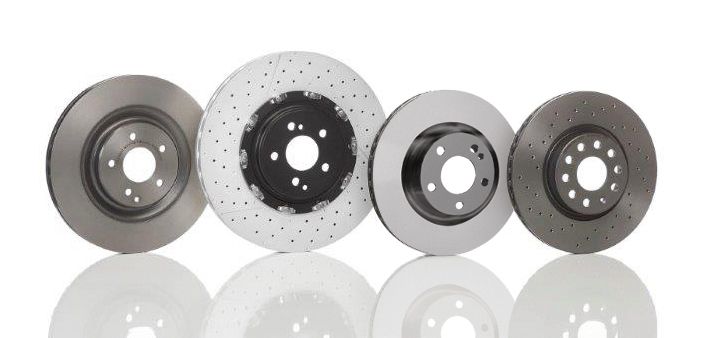AUTONEWS
 How to Change Your Brakes on Your Own
How to Change Your Brakes on Your OwnBrakes are a vital part of every vehicle, and important for safety, but they're also easy to replace. This article will help you walk through a DIY brake job.
As part of their normal operation, the brakes on your car, truck, or crossover wear out with use - and on occasion, you'll need to replace worn-out brake pads and brake rotors to ensure maximum sOnce you've determined that your brake pads and rotors are in need of replacement, it's time to make plans to change them. Many drivers have a service center or brake shop handle the work, though some prefer to tackle this job themselves. Brakes are one of the vehicle's most important components but the relatively simple design of the serviceable part of the braking system makes it the prime candidate for do-it-yourself replacement.
If you change your brakes on your own, you'll first need the required parts. These include a new set of brake pads, brake rotors, and an appropriate brake pad that may or may not be included in the packaging with your new brake pads.
You will also need the specific instructions for changing the brakes in your particular vehicle. The process of changing brake pads and rotors is highly similar between vehicles, but differences in the required steps, tools and techniques mean that backyard mechanics are best to fully understand every step of the job - and the tools needed for those steps - before beginning.
Look for step-by-step details on how to perform the brake job on your specific ride in an online owner's forum, YouTube videos, or by obtaining a copy of your vehicle's manual service.
Next, prep your workspace. You will need to lift the vehicle from the ground with a strong jack and a set of jack stands, while making sure to block the other wheels to prevent the vehicle from moving. Safety glasses, gloves and supplemental lighting should be on hand. Finally, get a rag or two and something comfortable to sit on.

From this point, precisely follow the instructions for your specific vehicle from start to finish. We'll provide a few more tips and tricks to keep in mind as you work.
You'll remove the clamp-like brake caliper by sliding it up and off the brake rotor. The caliper has a rubber length of brake line attached to it, which should not be strained - so plan to use a metal hook or rope to hold it up and out of the way, perhaps hanging on the coil spring above. If the caliper seems hard to remove by hand, a little help from a pry-bar may be required.
Next, you'll need to remove the brake rotor. Sometimes, heat, friction, dirt and rust can make this process tricky as the rotor disc will be 'stuck' to the wheel-hub behind it. A few good strikes with a hammer will typically dislodge a sticky brake rotor, making it easier to slide it off. Some brake rotors have special provisions to make their removal easier, just check the how-to guide. Autonews

Nenhum comentário:
Postar um comentário